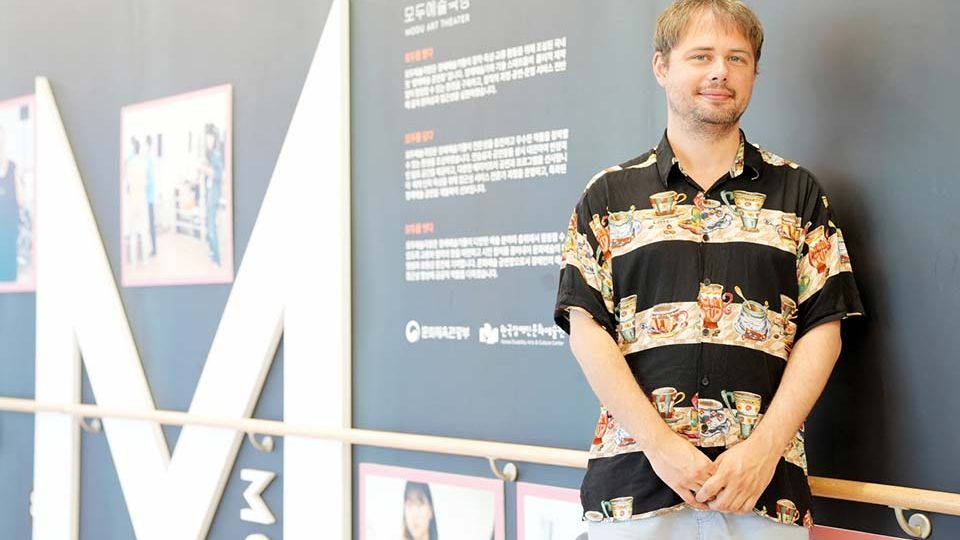June 13, 2024
SEOUL – The preproduction showcase of “Jellyfish,” starring actors with disabilities at Seoul’s Modu Art Theater in late May, was different in many ways.
From the outset, it set itself apart with an unconventional beginning where the cast and creative team gathered on stage in a small circle, introduced themselves and engaged in a quick chanting game to check on each other’s mental and physical states before the performance. The play was presented in a relaxed style, with dim lighting and the allowance for the audience to move freely in and out of the theater.
“What stood out was that the process was also part of the performance. And it added another layer to the work,” said Ben Weatherill, the playwright of “Jellyfish,” in a recent interview with reporters in Seoul.
“Lifting the curtain on how the work has been made was powerful and played as one of its strengths. I wish we had done more of that perhaps in the UK.”
Set in a small seaside town in the UK, “Jellyfish” follows Kelly, a woman with Down syndrome, and her mother Agnes. For 15 years, they have walked the same parts of the coastline every day, sharing a close bond. However, when 27-year-old Kelly falls in love with Neil, a nondisabled man, they are met with the biggest change and challenge in their lives.
Since its debut at the Bush Theatre in London in 2018, “Jellyfish” has garnered significant attention for casting an actor with Down syndrome as Kelly.
The Korean production, directed by Min Sae-rom, stars Baek Ji-yoon, an actor with Down syndrome, as Kelly, Jung Soo-young as Agnes, Kim Ba-da as Neil and Kim Bum-jin, an actor with dwarfism, as Dominic. The preproduction showcase was sold out.
A notable aspect of the production was the presence of a human prompter, who assisted Baek by giving her cues or lines if she forgot them, during the show of about 2 1/2 hours.
“You have to find the best way to create the work with the people who are involved. Every performer is different, whether or not they’re able-bodied. So taking the time, care and extra attention to ensure the best possible performances is really important,” said Weatherill.
In the UK version, the character Dominic had learning disabilities, whereas the Korean edition features Kim, an actor with dwarfism.
Weatherill said it was important for him to have two characters with disabilities on stage discussing their hopes, dreams and prejudices and forming organic friendships.
“And Agnes’s attempt to set Kelly up with another disabled person exposes her own prejudices,” he said. “I think this casting choice added an interesting dynamic.”
Weatherill stressed the significance of portraying characters with disabilities living their authentic lives.
“We very rarely see disabled characters on stage or screen living full, authentic lives. They want the same things — freedom, love, respect — and that’s the message of the show. And that’s why theater is important because it allows you to walk in somebody else’s shoes for a couple of hours, and if it’s good theater, hopefully, you come away a little bit changed.”
Emphasizing that Kelly is a character first, not her disability, the British playwright said he took extra care not to generalize disabilities.
“I didn’t want it to speak for a whole community. It’s a story about two very specific characters going through the biggest change of their lives. At its core, it’s a mother-daughter story — that’s the true love story of the piece,” Weatherill said.
“Jellyfish” is aiming for a full production next year, according to the production team at Creative Table Suk Young.


